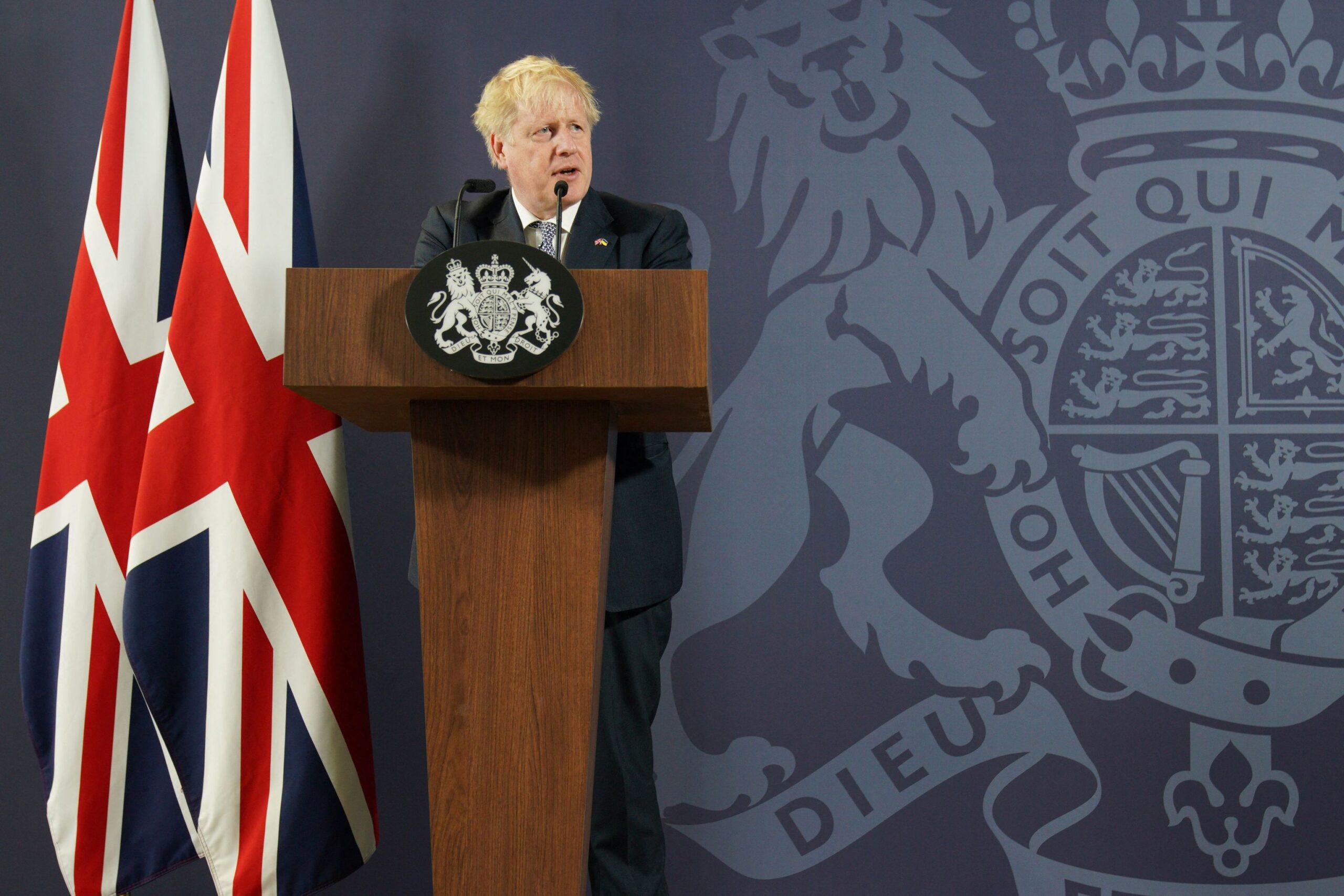Boris Johnson has sought the complicity of the British – “we are on your side” – in his political ‘rentrée’ in Blackpool, in the first public act after the motion of censure in which 41% of his own deputies voted against him . The ‘premier’ has tried to relaunch his government program with a battery of actions in the face of the increase in the cost of living, despite the fact that 61% of voters disagree with his ideas in the face of inflation and 69% consider that he is doing poorly as prime minister.
The YouGov polls reflect a new collapse in the conservative leader’s popularity, comparable to the one he experienced in December at the outbreak of the ‘Partygate’ scandal. 60% estimate that the ‘premier’ should resign, including 32% of the conservatives. The Labor Party is ahead by eight points in the polls (39% to 31%) and its leader, Keir Starmer, leads Johnson by the same difference when asked “who do you think would be a better prime minister?”
Johnson has already reiterated, however, his intention to hold on at the helm despite the storm and in the face of a possible legislative boycott by the 148 rebel Conservative Party MPs. The Secretary for Brexit Opportunities, Jacob Rees-Mogg, has warned, meanwhile, that a blockage of the Government’s legislative agenda could end in the calling of early elections, a big ordeal that Johnson could resort to again, as he already did in December 2019, to hold on to his position.
The defiant response of the ‘premier’ – after technically winning the motion of censure, but suffering political humiliation at the same time – threatens to further aggravate internal divisions. Within the Government there is already a “purge” of advisers who criticized him or did not support him in the face of the motion of censure, such as Baroness Helena Morrissey, deposed from her position as non-executive director of the ‘Foreign Office’ by the head of Foreign Liz Truss.
Aaron Bell, one of Johnson’s most conspicuous critics within the party, has warned in statements to ‘Sky News’ that the ‘premier’ has not made the slightest attempt to open a dialogue with the “rebels” since the motion of censure: “You don’t have 148 votes against overnight and for no reason. Many MPs think they have been sidelined by this government. I think it would be useful if someone in their team reflected on why this has happened.”
Johnson’s strategy has, however, been the closest thing to a rush forward. In his first public intervention after ‘black’ Monday, he limited the questions from the press to six and avoided any reference to the motion of censure. His purpose from beginning to end was to reconnect as much as possible with the British, ensuring that his government has already put on the table the equivalent of 43,000 million euros to help families and companies weather the rise in housing prices. Energy.
Johnson has sent between the lines the message that the hard wing of the party expected so much: “The weight of taxes is very high. The current level is an aberration, caused in part by Covid. Sooner rather than later, the pressure tax is going to go down”.
The ‘premier’ has, however, warned his compatriots to leave behind “the Covid mentality” and the idea that “the State is the solution”. In a new nod to the still loyal wing of the party, he stressed that “less state is, sometimes, the solution.” And, incidentally, he recalled the risks of “a spiral of price increases and wage increases” if workers ask to be rewarded for inflation: “That is not the solution and it could lead us to an even greater economic crisis.”
Johnson has directly blamed Vladimir Putin’s “unprovoked war” as the root cause of the galloping rise in energy, transportation and food prices that began to take shape at the end of the pandemic. The ‘premier’ has acknowledged that the economic sanctions against Russia are having an effect on the pockets of Europeans. “But abandoning the Ukrainians in their heroic struggle would be morally repugnant,” he has pointed out.
Johnson’s intervention has occurred coinciding with the historical record of 100 pounds (118 euros) that the British are paying to be able to get the deposit of the car. The OECD has meanwhile downgraded the UK’s economic outlook and warned that next year (with zero growth) it may be the country with the worst economic performance in the G20, apart from Russia, with inflation still at 7 %, after having reached 10% this year.
Johnson has boasted of the lowest unemployment rate since 1975 (3.8%) and has assured that his plans “for a stronger economy” – which he will continue to unravel in the coming weeks – lay the foundations for a recovery as soon as inflationary pressure subsides .
This Thursday he has opened fire with his plans for housing, in a ‘remake’ of Margaret Thatcher’s initiative that gave more than two million Britons access to social housing ownership. Johnson has recognized that the vast majority of British ‘millennials’ today cannot aspire to the “dream of owning a home” and has promised measures to facilitate “the right to buy” for new generations.
The opposition has criticized Johnson’s plans as a “pastiche” to capture headlines, comparable to his announcements in recent months, almost always coinciding with critical moments, which ended in borage water. “The Johnson Government is broken,” said Liberal Democrat Daisy Cooper. “They have absolutely no idea how to help millions of families who are struggling to pay their electricity bills in the midst of runaway inflation.”
Conforms to The Trust Project criteria
















